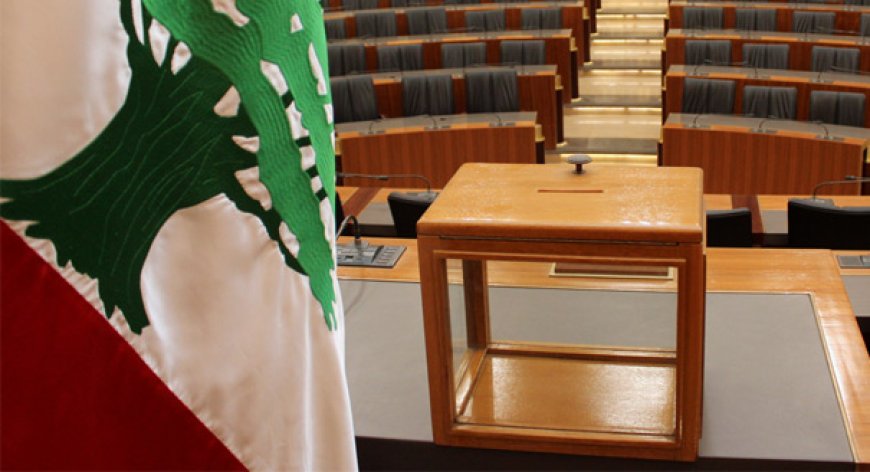Lebanon’s Presidential Election: Can It Serve as a Pathway to National Stability and Regional Peace?
The recent election of a president in Lebanon marks a watershed moment for a nation that has long grappled with political paralysis and external interference. For nearly two years Lebanon has endured a leadership vacuum during which its political elites fractured yet compelled by necessity engaged in protracted negotiations to reach an agreement. This consensus while domestically orchestrated bore the unmistakable imprint of foreign influence underscoring Lebanon’s vulnerability to regional and international dynamics.

By: A.Yeganeh
The recent election of a president in Lebanon marks a watershed moment for a nation that has long grappled with political paralysis and external interference. For nearly two years Lebanon has endured a leadership vacuum during which its political elites fractured yet compelled by necessity engaged in protracted negotiations to reach an agreement. This consensus while domestically orchestrated bore the unmistakable imprint of foreign influence underscoring Lebanon’s vulnerability to regional and international dynamics.
The election of Michel Aoun as president is emblematic of this delicate interplay between internal aspirations and external pressures. Coming on the heels of a tenuous ceasefire with Israel Lebanon stands at a critical juncture with the task of rebuilding war-torn areas and restoring a semblance of stability looming large. In this context the presidency assumes a pivotal role in shaping the country’s trajectory both domestically and in its broader geopolitical engagements.
The Role of Hezbollah and the Resistance Axis
Hezbollah a formidable political and military force in Lebanon played a central role in shaping the presidential outcome. The Lebanese resistance under immense pressure in recent months due to heightened regional tensions and sustained media assaults by Arab and Western actors has prioritized national peace and stability as prerequisites for its revitalization. Hezbollah’s objectives are clear: to safeguard Lebanon’s sovereignty rebuild the predominantly Shiite southern regions devastated by conflict and bolster public confidence in the resistance movement.
The election of Michel Aoun reflects a calculated compromise among Lebanon’s diverse political factions. Hezbollah’s staunch opposition to a pro-Western candidate such as Samir Geagea coupled with its insistence on a figure capable of bridging divides ultimately paved the way for Aoun’s presidency. This pragmatic decision underscores the resistance’s commitment to national cohesion despite the relentless efforts of Western and Arab powers to undermine its influence.
Western-Arab Objectives and the Resistance's Resilience
For years the disarmament of Hezbollah and other resistance groups has been a central objective for Western and Arab states. Despite these efforts the resistance has maintained broad popular support enabling it to counter external pressures effectively. The election of a seasoned and politically moderate leader like Aoun has for now forestalled the realization of these external ambitions. However it is likely that the Western axis will persist in leveraging diplomatic economic and political tools to weaken the resistance and its allies within Lebanon’s fragile political landscape.
The resilience demonstrated by Hezbollah and its affiliated groups during past confrontations has reinforced their standing as indispensable actors in Lebanon’s internal dynamics. Israel’s aggressive posture exemplified by the Netanyahu government’s efforts to dismantle the resistance through war and coercion has consistently failed to achieve its objectives. The recent conflict only reaffirmed the resistance’s capacity to withstand external aggression and maintain its influence.
Challenges Facing the Aoun Administration
As President Michel Aoun assumes office he inherits a nation beset by deep-seated challenges. Lebanon’s political framework often characterized by sectarian fragmentation and external manipulation remains precarious. The new administration must navigate these complexities with caution particularly as foreign powers continue to exert pressure on Lebanon to diminish the role of the resistance. Weakening this pivotal force however risks exposing Lebanon to increased foreign domination—a scenario that would erode the very foundation of its sovereignty.
Aoun’s government faces the dual challenge of fostering national unity while resisting external pressures. Achieving this delicate balance will require inclusive governance the rebuilding of trust among Lebanon’s diverse communities and a steadfast commitment to preserving the nation’s independence from external interference.
The Path Forward: Stability Through Consensus
Lebanon’s tumultuous political history has been marked by instability driven by both internal divisions and external shocks. The recent presidential election achieved through a rare consensus among political factions and resistance groups represents a significant step toward stabilizing the nation. This fragile agreement underscores the importance of internal unity in the face of mounting regional and global challenges.
In a region rife with volatility Lebanon’s political actors must recognize that unity is not merely a strategic imperative but a necessity for the nation’s survival. The resistance’s unwavering emphasis on internal consensus has been instrumental in averting crises and ensuring that Lebanon remains resilient amidst external pressures. Without such unity the country risks descending into deeper instability with profound consequences for the broader region.
Conclusion
Lebanon’s political future hinges on the completion and consolidation of its political structure. The election of Michel Aoun as president while a significant milestone is but the first step in a long journey toward national stability and resilience. In a region beset by conflict and external interference Lebanon must chart a course that prioritizes sovereignty unity and the rebuilding of its war-ravaged society. Only through these efforts can Lebanon emerge as a beacon of resilience in an increasingly turbulent geopolitical landscape.













































